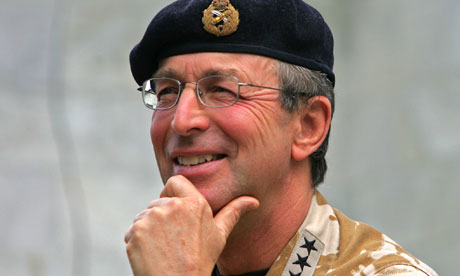
From Richard Norton-Taylor and Nick Hopkins, the Guardian: The British government’s most senior defence and security policy advisers are finally facing up to a fundamental shift in the world’s military and economic balance. More than two decades after the end of the cold war, they are acknowledging some harsh realities – Europe will no longer be able to rely on the US, Europe is getting progressively poorer, and the people of Europe want to spend less on weapons, not more.
The UK must learn to live with shifting alliances and seek new friends. This was the clear message behind the chief of defence staff’s [General Sir David Richards] annual "state of the union" address at the Royal United Services Institute on Wednesday night. . . .
He pointed to "greater US military focus on the Pacific meaning less emphasis on Europe and her problems". Richards added: "For the first time the Pentagon has specified that its Main Effort will be South East Asia".
He continued: "And as the world evolves, so new groupings will emerge".
The most obvious example, he said, was the UK’s "alliance with the French", one strengthened by last year’s Anglo-French defence treaty and very close cooperation during the Libyan conflict. . . .
In what was perhaps the most significant passage of his speech, Richards stated: "While there are no templates and each security challenge will be different, we will require allies, not only established ones like our Nato partners but also non-traditional countries which will challenge our interoperability but offer opportunity and reach".
Libya has offered a taste, with Qatar and the United Arab Emirates providing aircraft and special forces as well as weapons, and Jordan providing military advisers. (photo: Ahmad Masood/Reuters)
Image: reuters%2012%2016%2011%20General-Sir-David-Richard-006.jpg
